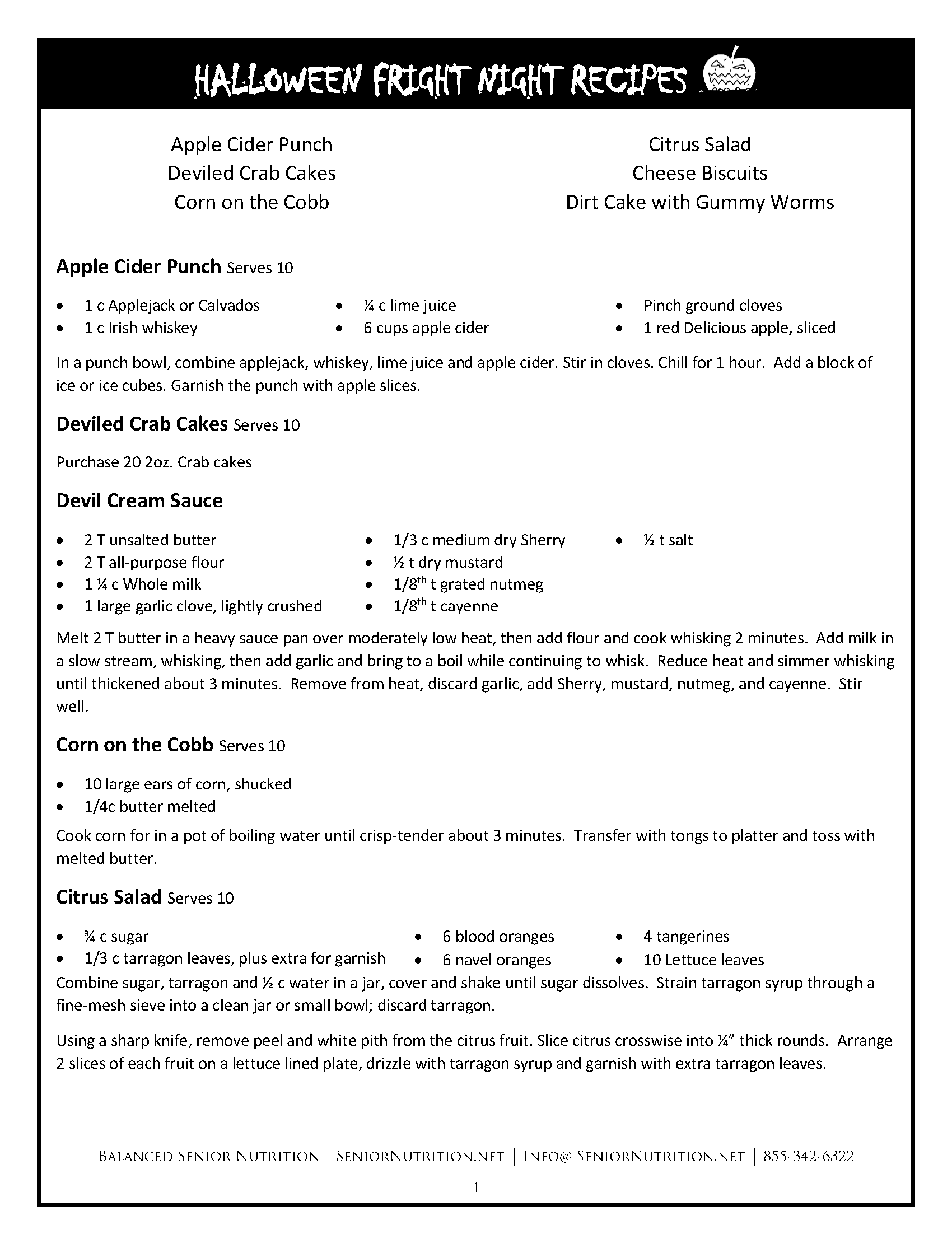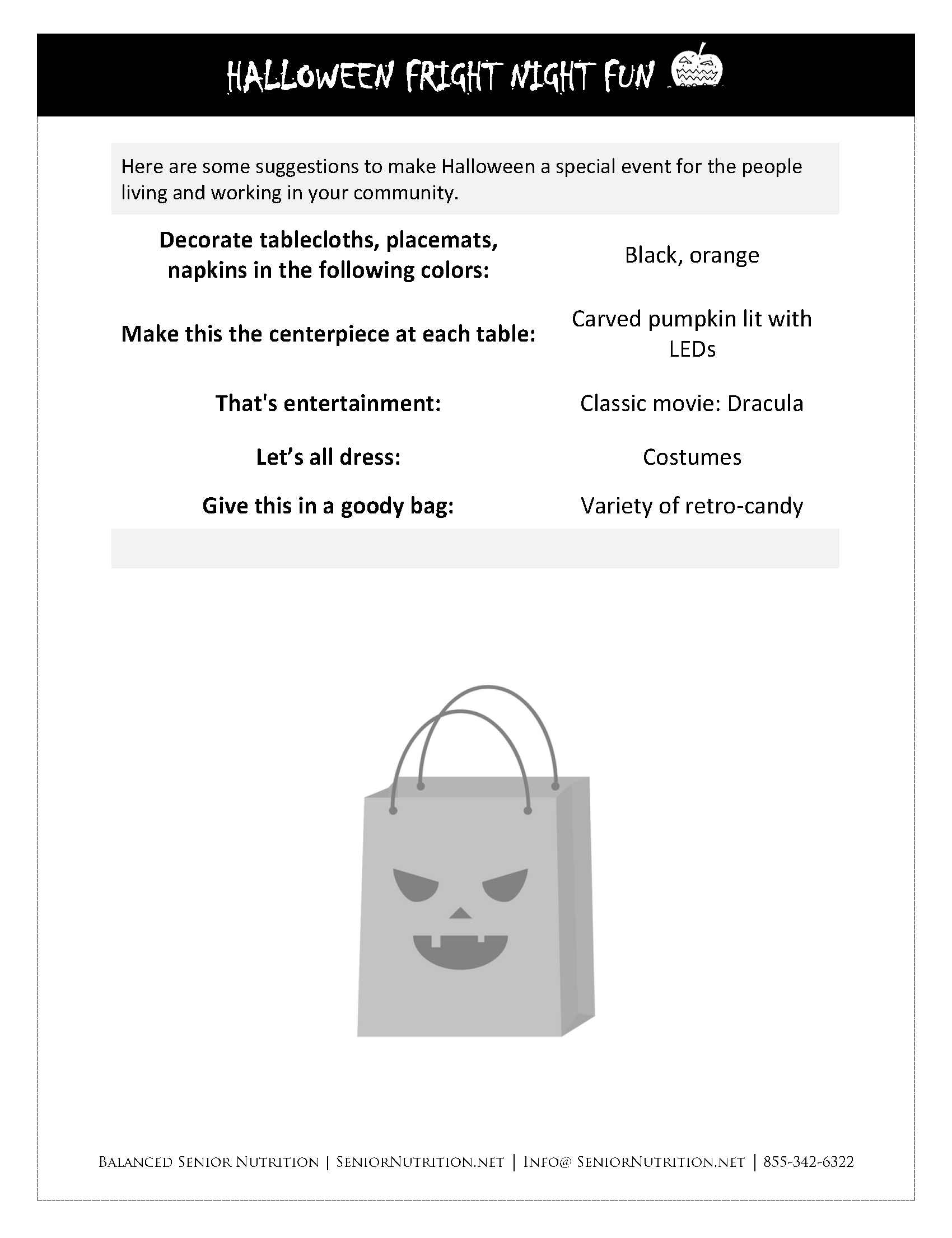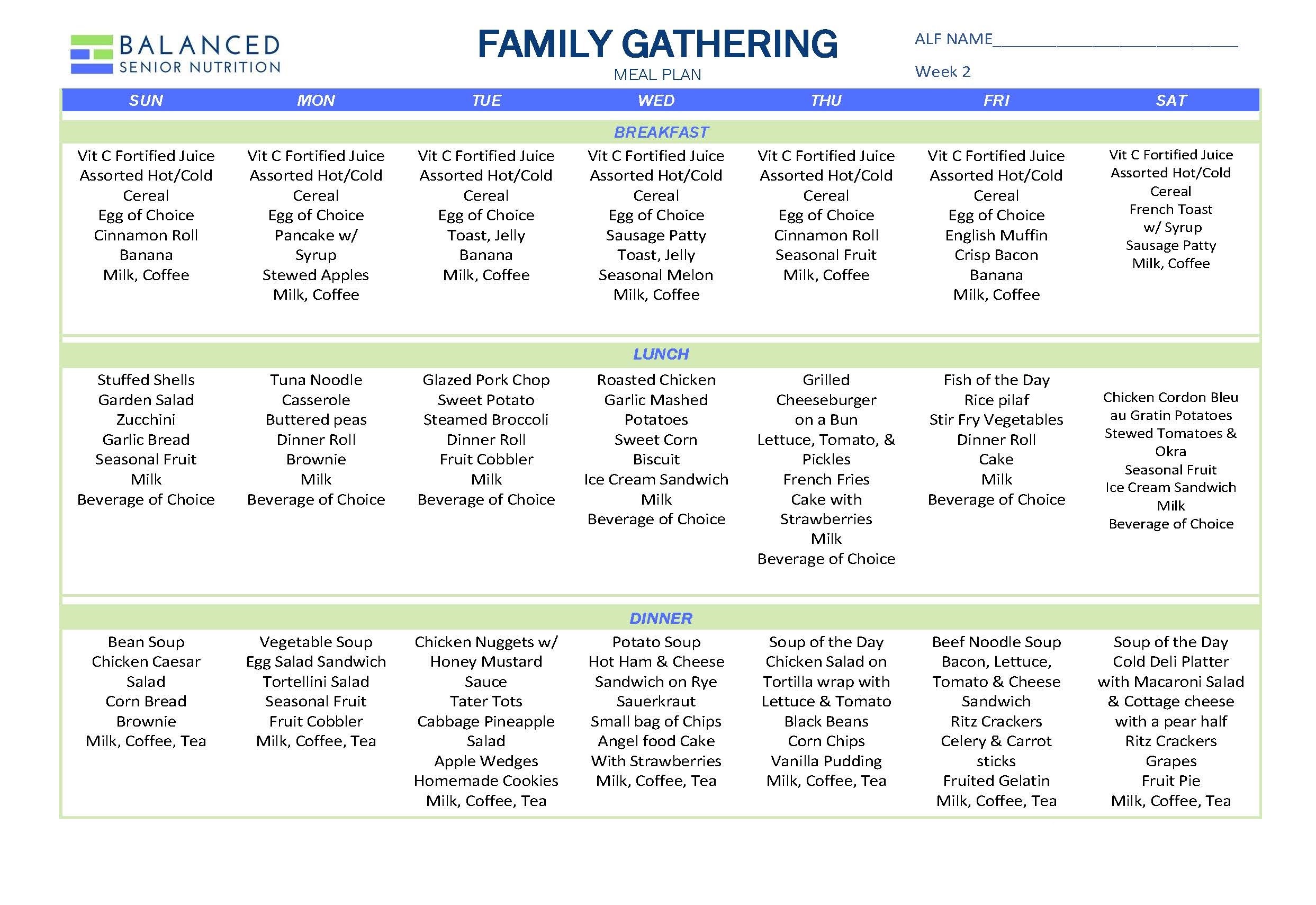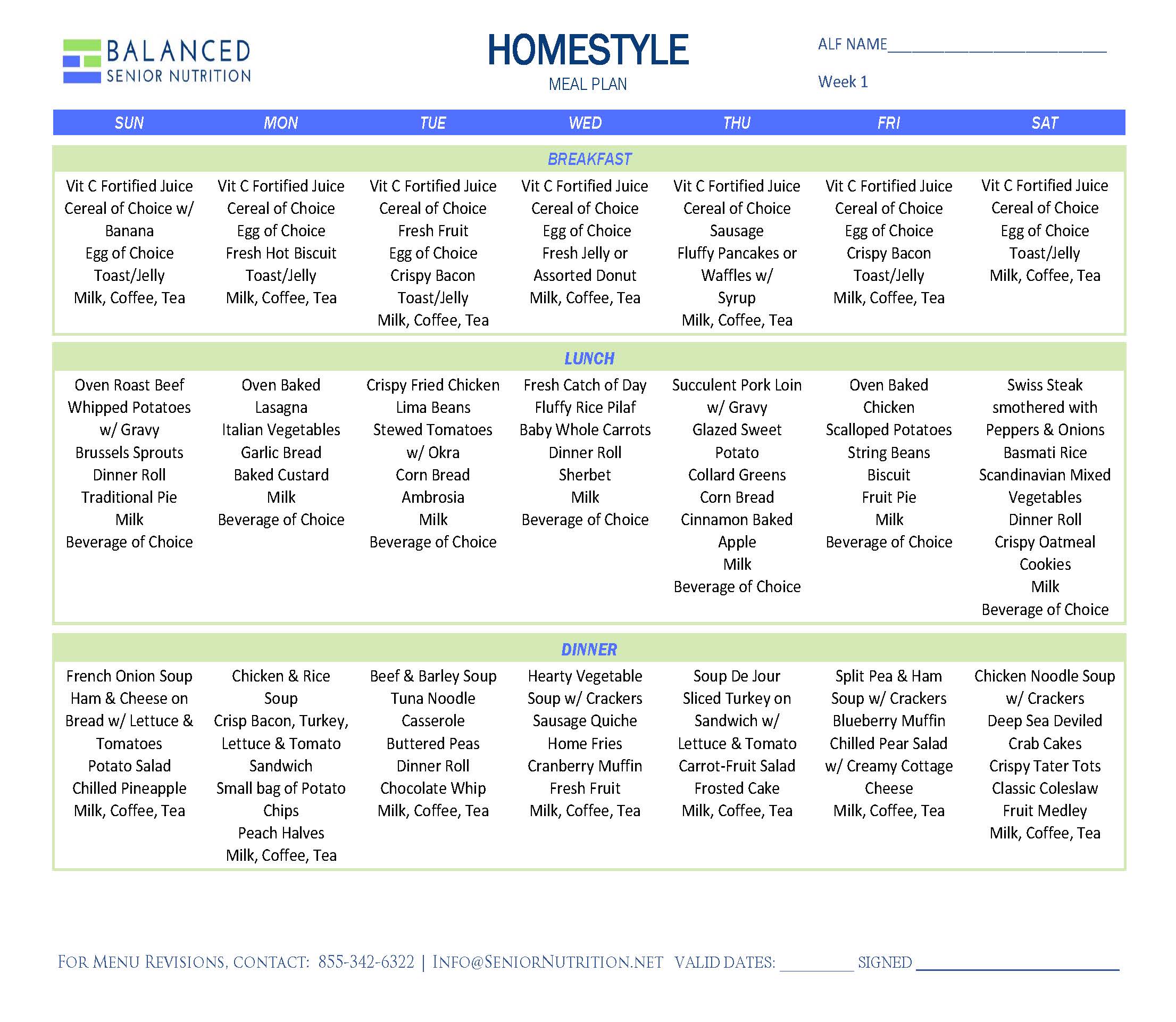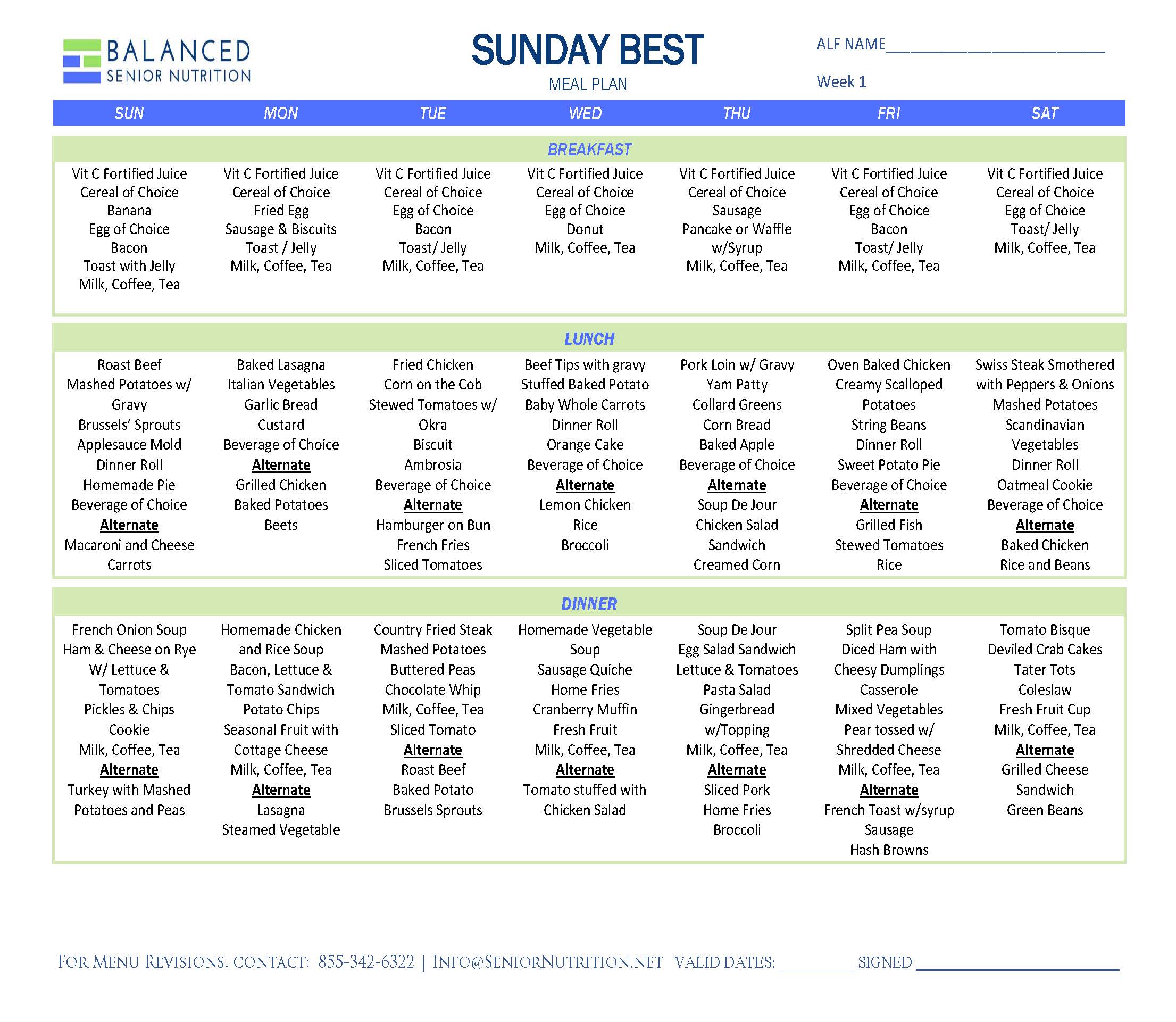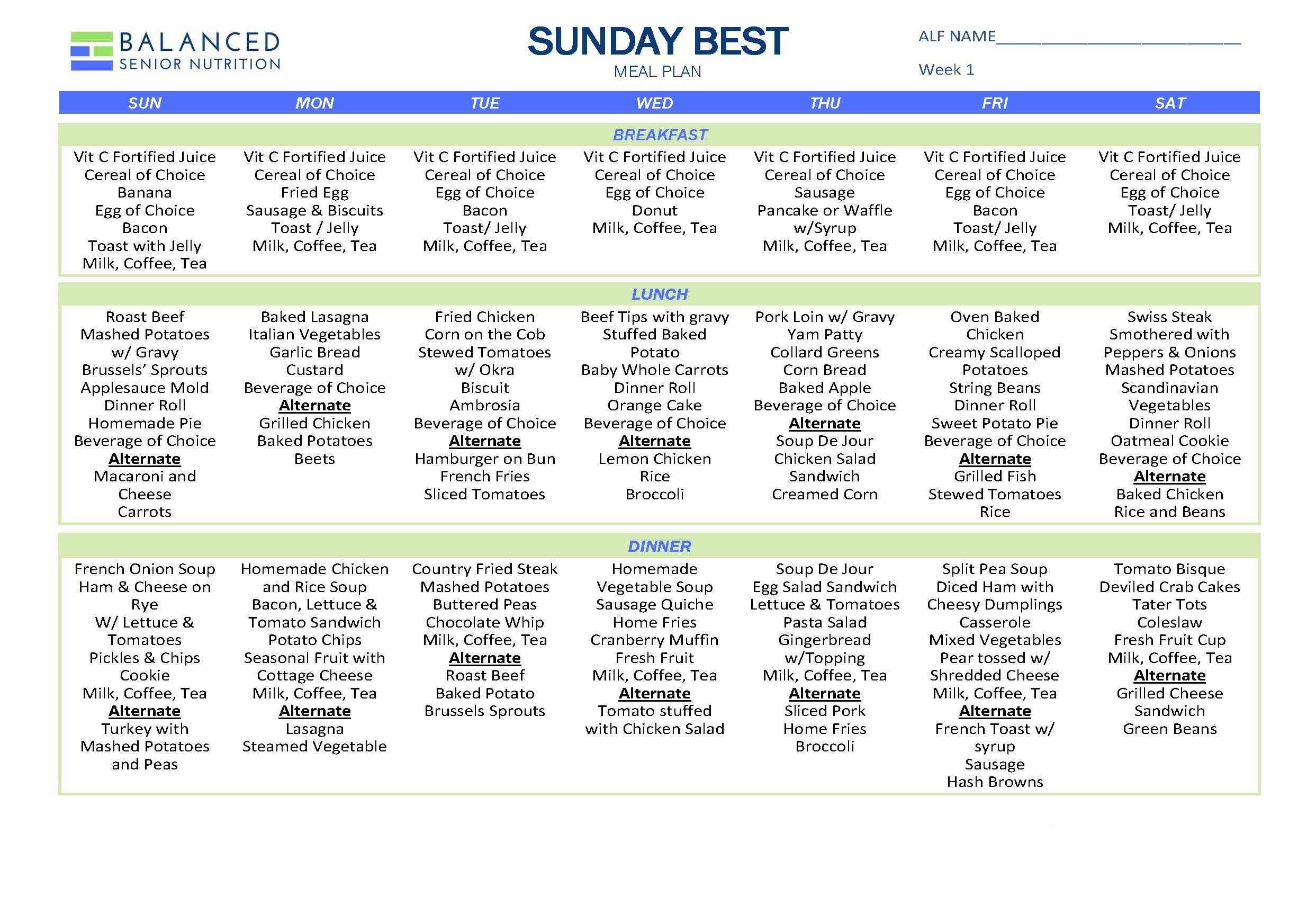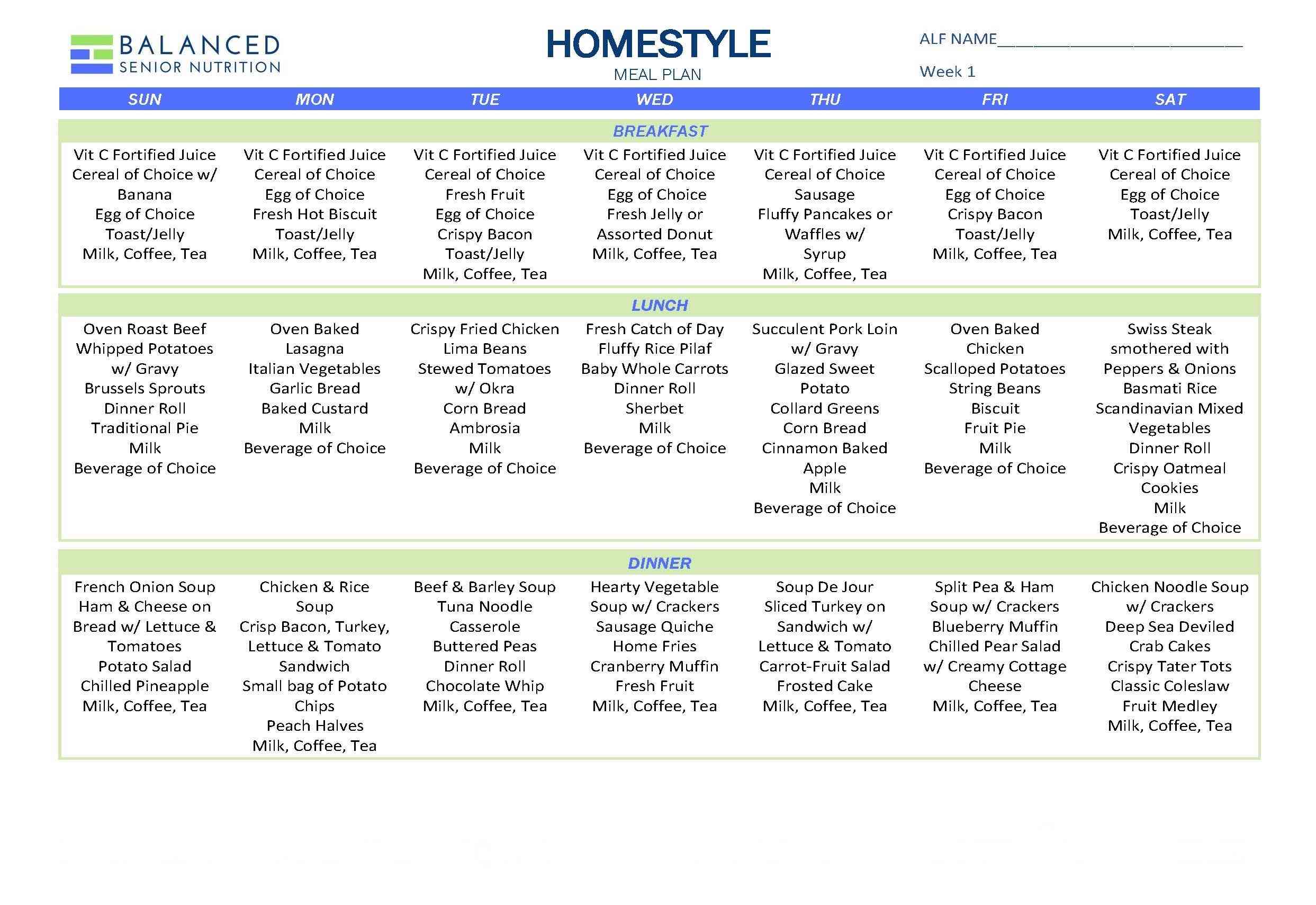
Recently, Ms. G told her nurse’s aide that she wanted to try something different with her restricted altered-consistency diet, because she was unhappy with her meals and she thought that might be the reason for her recent weight loss. The puréed foods (3 scoops of food on a plate) had become very unappealing to her. So, the aide told her nurse and it was arranged for Ms. G. and her care team to get together for a meeting. The result of that meeting was a new person-directed care plan that Ms. G., her care team and her attending physician felt best served the 88-year-old’s needs and desires.
(Refer to sample Traditional Care Plan and new Person-Directed Care Plan below)
The Benefits of Resident-Directed Dining and Informed Choice
Ms. G. was happy about her new dining care plan. From the beginning she was involved in all the decisions and the overall goal. Her goal was to stop losing weight and start having meaningful meals again. Because the whole team was willing to work with her regarding her dining options, she was able to set a goal of working with her speech therapist on her pocketing issues with the idea of eventually adding mashed or softened vegetables and pasta to her diet. Working toward a goal made it a lot easier for Ms. G. to deal with eating the puréed foods and gave her a much-needed feeling of control. The addition of three of her favorite foods that were soft and easy to chew: bananas, real egg salad (not pureed) and macaroni & cheese, gave her something tasty to look forward to every day. Also, by evaluating the care team’s presentation of the risks and benefits of eating whole meats, Ms. G. made an informed decision to continue eating puréed meats a little longer because of the choking risks. If she continued to lose weight, they decided an intervention of liberalizing meat consistencies to ground or chopped would be introduced. The team also instituted the Frazier protocol that allowed her to drink thin water between meals. All in all, Ms. G. was delighted with her new dining care plan.
Water pitcher photo
Growing Caring Relationships Is the Key to Person-Directed Dining
Ms. G. had exercised what we call the Three Rights of Dining Delight: The right to eat what she wants, the right to eat when she wants, and the right to eat where she wants, as long as her care team offered informed choices that considered the risks and benefits of her food choices and food restrictions. Person-directed dining is all about growing relationships between staff and the people they care for to create a warm and caring environment, like being at home. That can mean little things like offering sips of thin water between meals, a real banana for a bedtime snack, or having a favorite food like egg salad or macaroni and cheese always available to nibble on. As a nursing home resident, Ms. G. had the right to decline specific interventions and eat the way she wanted as long as her provider informed her of the possible consequences of her choices and offered relevant alternatives. Since her change in diet, Ms. G. has not lost any more weight and continues to work toward her goal of eating mashed or softened vegetables.
Traditional Care Plan for resident with diagnosis of dysphagia
Problem: Ms. G has a nutritional problem or potential nutritional problem r/t dysphagia
Goals: Will comply with recommended diet through next review date; Will tolerate pureed diet with nectar-thick liquids
Interventions: Educate resident on the importance of the altered consistency diet. Encourage compliance, document non-compliance; Monitor/document/report to MD prn for s/s of dysphagia: pocketing, choking, coughing, drooling, holding food in mouth, several attempts at swallowing, refusing to eat.
Problem: Ms. G has a potential for further weight loss, leaves >50% foods uneaten
Goals: Will maintain adequate nutritional status, as evidenced by no significant weight loss through next review, and consuming at least 75% of most meals through next review date.
Interventions: Provide and serve diet as ordered. Document intake every meal. Provide snacks between meals. Offer house calorically dense supplement 120 ml TID, record % consumed.
Shady Acres
Person Centered Care Plan
Liberalized Diet (altered consistency)
Written by Dotty Golightly with Shady Acres care plan team
Why is this a focus?: Diagnosis of dysphagia noted, however, dietary restriction may impair quality of life and acceptance of diet.
Goals: Will remain free from episodes of choking through next review date, while still enjoying individualized meals.
Approaches: Provide altered consistency diet as ordered, individualized for resident food and dining preferences for example, special allowance for banana, egg salad and macaroni & cheese, as ordered.
Why is this a focus?: Resident reports she does not have much of an appetite, and that the pureed food is not appetizing, so she has been eating less.
Goals: Mrs. G. will participate in choosing what she wants to eat and when she wants to eat, as evidenced by her satisfaction with food choices. She will experience less pocketing of food by eating pureed meat with all meals. Gradually advance diet to mashed or softened vegetables and cooked noodles through next review date.
Approaches: Speech Therapy validates need for altered consistency diet. Observe acceptance of meals, offer alternatives as needed, include favorite and comfort foods. Dietitian reviews current recommendations with resident, including preferred foods in diet as possible. Enriched oatmeal at breakfast as requested.
Why is this a focus?: Resident states that she can accept the thickened liquids, but would like to be able to drink water sometimes.
Goals: Ms. G. will enjoy thin water (Frazier protocol) between meals and when she has a clean mouth. She will be provided with strategies to minimize risks associated with drinking thin water.
Approaches: Speech Therapy validates need for altered fluid consistency. Encourage fluid intake. Implement Frazier water protocol to provide water between meals, oral hygiene plan in effect.
Observe for s/s dehydration, (poor skin turgor, abnormal labs, dark concentrated urine, decreased urine output, weight loss), inform MD as needed. Speech Therapy continues to provide therapy and interventions for safe swallow strategies, will recommend advanced diet consistencies as possible.
Why is this a focus?: Resident expresses concern about recent weight loss.
Goals: Adequate intake to meet nutrition needs, with intake >75% of meals and weight maintenance without significant weight loss.
Approaches: Offer nutritious snacks between meals to encourage intake. Resident requests egg salad sandwich with nectar-thick whole milk be available, as this is her preferred snack in the evening. May liberalize diet further if weight loss trend continues. Weigh resident weekly, observe for weight trends.


